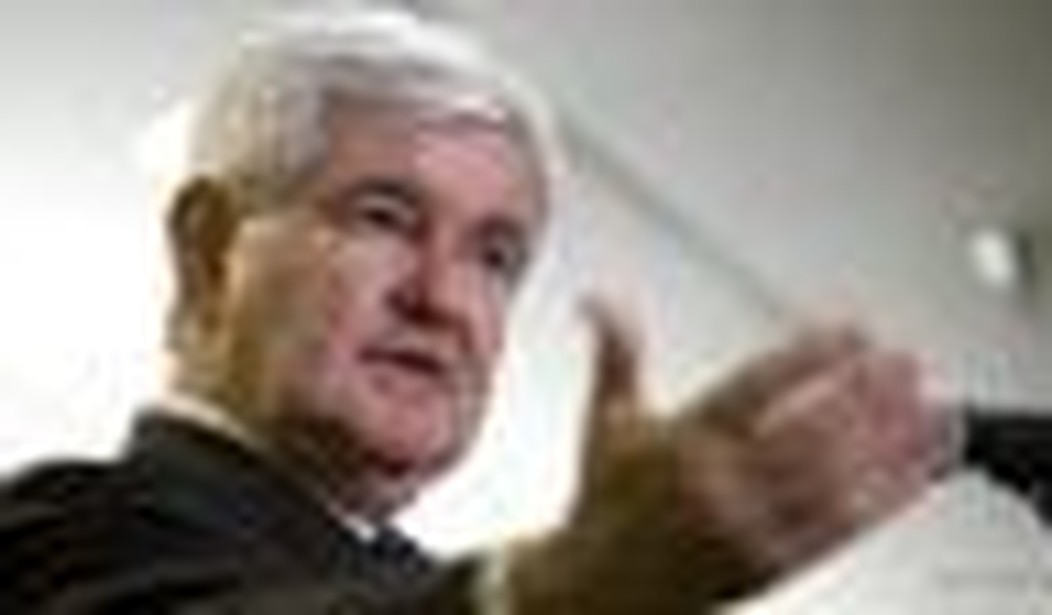The GOP primary process has been a succession of Republican “Not Romney” challengers who have achieved frontrunner status only to fall out of contention. Perhaps the most surprising of these was former Speaker of the House Newt Gingrich. Pundits declared him politically dead after he was pushed out of the speakership in 1998 and news of an affair with an aide emerged. Always a longshot, his hopes of winning the presidency were allegedly dashed earlier this year due to his criticism of Paul Ryan’s plan for reforming entitlements.
How did Gingrich and the previous frontrunners emerge and what has been behind their quick rises and meteoric falls?
The answer can be found in candidate positivity. Michele Bachmann, Herman Cain, and Rick Perry each rose on their positive strengths and most of them fell on the basis of decisions to go negative.
Bachmann drew people due to her history of conservative activism as a key tea party leader. Bachmann’s stock began to decline when she went on the attack, criticizing fellow Minnesotan Tim Pawlenty, and then proceeding to go after Perry, Cain, and Gingrich when they enjoyed frontrunner status.
Perry rose on the positive hope that he could translate his record of job growth and limited government in Texas into turning the nation’s economy around. Perry went negative on opponents of in-state tuition for illegal aliens, calling them “heartless,” and got baited by the debate moderators into a reality TV confrontation with Mitt Romney.
Herman Cain enjoyed two separate rises in the polls. The first occurred in early summer and was short-circuited by Cain’s discussion of controversial and divisive issues such as requiring loyalty oaths for Muslim appointees and opposing the building of a mosque in Murfreesboro, Tennessee. His second rise occurred in September and he continued to ride high in the polls for the longest time of any of the contenders so far despite a barrage of negative media and allegations against him.
Newt Gingrich, up until this point in the campaign, had been the most positive candidate in the race. Gingrich has argued that Republicans should not go after one another, but rather target Obama, and further, that each candidate on the debate stage would make a better president than the incumbent. Time and again, Gingrich has turned down the media when baited to go after other candidates and instead offered firm rebukes to debate moderators.
Gingrich has tapped into three key desires of Republican voters. First, they want someone who will talk about solutions to our nation’s problems. Secondly, they want someone who can unite us to defeat Obama rather than pitting us against one other. Third, they want someone who acts presidential, and an attack dog is not presidential. It was a similar positive focus that led to the rise of Mike Huckabee in 2008 despite a lack of funding and organization.
Positive campaigns fly in the face of the advice from political consultants. When a campaign finds itself down in the polls, the biggest temptation is to start throwing bombs to knock down the leading candidates. The tactic can work in some situations, particularly in a two-person race On viewing a negative attack, voters can choose either to punish the attacked candidate based on the content of the ad, or they can choose to punish the attacking candidate for going negative.
However, as former House Minority Leader Dick Gephardt (D-Mo.) learned, voters in multi-candidate presidential primary campaigns have a third option. In 2004, Gephardt’s campaign desperately needed to repeat its 1988 win in Iowa to obtain the momentum to continue in the race. To win Iowa, Gephardt set out to knock down frontrunner Howard Dean through a series of negative attacks. Gephardt succeeded in taking Dean down as Dean finished third and issued his famous caucus night scream. However, Gephardt finished a distant fourth and was forced out of the race. Gephardt learned that Iowa voters could punish both him and Howard Dean by voting for other candidates.
A similar dynamic has been at work in this campaign. Millions of dollars and countless hours of airtime have been extended by other campaigns, Super PACs, talk radio, and media outlets casting doubt on the other campaigns. Newt Gingrich was the beneficiary of these attacks by not going negative.
The campaign is heating up as Iowa votes in a matter of days and Newt Gingrich at last succumbed to the temptation to go negative with his attack on Mitt Romney’s time at Bain Capital and then lobbed additional attacks on Romney and Ron Paul. Gingrich gave in to the natural human reaction to return fire on the attacking campaigns. History would suggest that in this case, the natural human reaction may not be the right one. Gingrich’s recent decline in polling shows this.
The battle for Iowa remains up for grabs with Romney and Paul tied in the latest RCP polling average and three other candidates at double digits. While consultants and political insiders may celebrate the latest clever attack ad, what the course of this campaign suggests is that the smartest focus for the last days of this campaign is to convince voters that the candidate has what it takes to take America in a positive direction and that he can unite the GOP and the American people in order to do that.









Join the conversation as a VIP Member